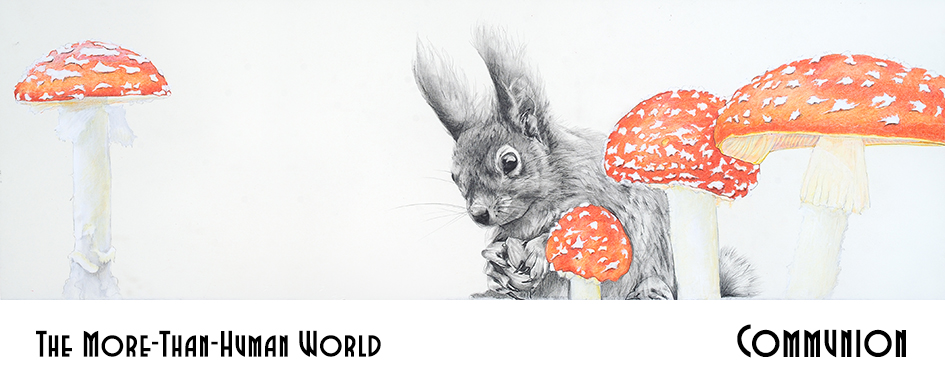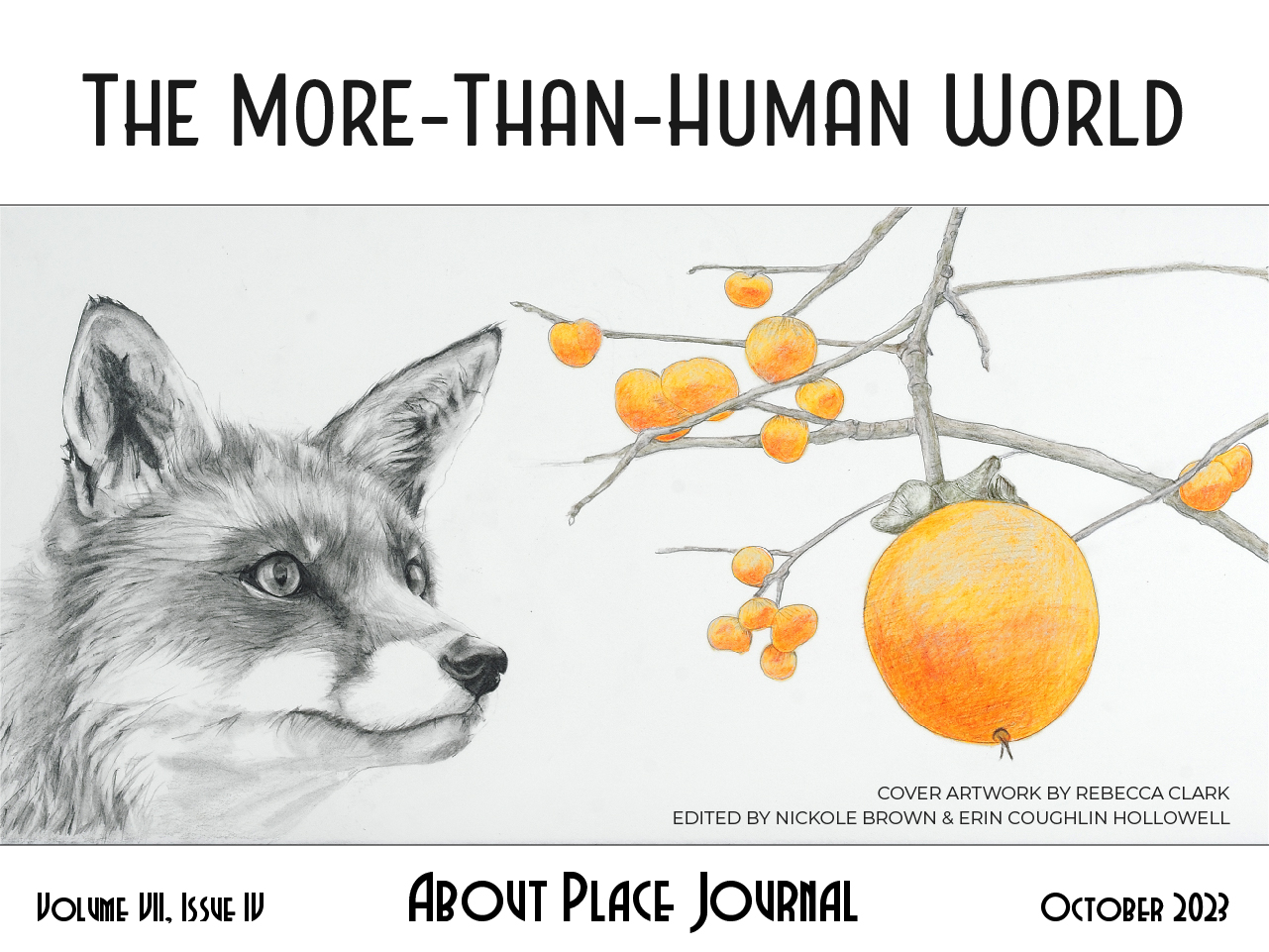soaked black with rain. It tore into her, just like that,
blasting her open to the shock of light with its burning
touch, the way a boy once entered me. A tree’s sapwood
explodes when struck by a bolt, no choice but to stand still,
while the charge travels to earth, electricity absorbed in ways
I do not understand. I lay still, too, when it happened to me,
like a girl in a folk tale, stunned by what I had no name for.
Everything was quiet afterwards. The rain pelted down
on the tree and me, all our secrets showing, her reddish bark
peeled back by fire, my flowered panties torn. The scar left
by it remains on the tree, neat black seam where her bark
inched slowly together, closing over the shredded pink wood,
like a body shutting a door. The strike might have broken her,
as it broke me for a time. But the oak didn’t die, her sap scalded
within. She held on, standing tall at the bottom of the hill, roots
anchoring her to this place. I stayed upright, too, my scar
invisible, the psyche’s gut stitches cinched tight within. An oak
tree isn’t a woman. I am not an oak. I hesitate to braid our stories
together, not wanting to impose mine on hers. But what I love
most about the tree’s wound is the place where she could not
seal herself completely shut. The wood there is white and smooth
as satin, the black slit splitting, fan-shaped, alluvial, down her trunk
to the plush delta of moss at her roots. It teaches me something,
broken beauty from which she re-grew, in this oak savanna—
vanishing ecosystem we slowly “restore”—where trees talk
to one another through their roots and I sit at her base, the cool,
blue hands of rain watering our lives in ways I never imagined.


